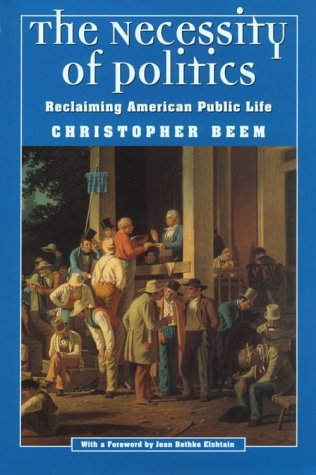Morality and Society Series (CHUP)
1 total work
Even in the midst of an economic boom, most Americans would agree that civic institutions are hard pressed and that they are growing ever more cynical and disconnected from one another. In response to this bleak assessment, advocates of "civil society" argue that rejuvenating neighborhoods, churches and community associations will lead to a more moral, civic-minded polity. Christopher Beem argues that while the movement's goals are laudable, simply restoring local institutions will not solve the problem; a civil society also needs politics and government to provide a sense of shared values and ideas. Tracing the concept back to Tocqueville and Hegel, Beem shows that both thinkers faced similar problems and both rejected civil society as the sole solution. He then shows how, in the case of the Civil Rights movement, both political groups and the federal government were necessary to effect a new consensus on race. Taking up the arguments of Robert Putnam, Michael Sandel and others, this book calls for a more developed sense of what the state is for and what American politics ought to be about.
